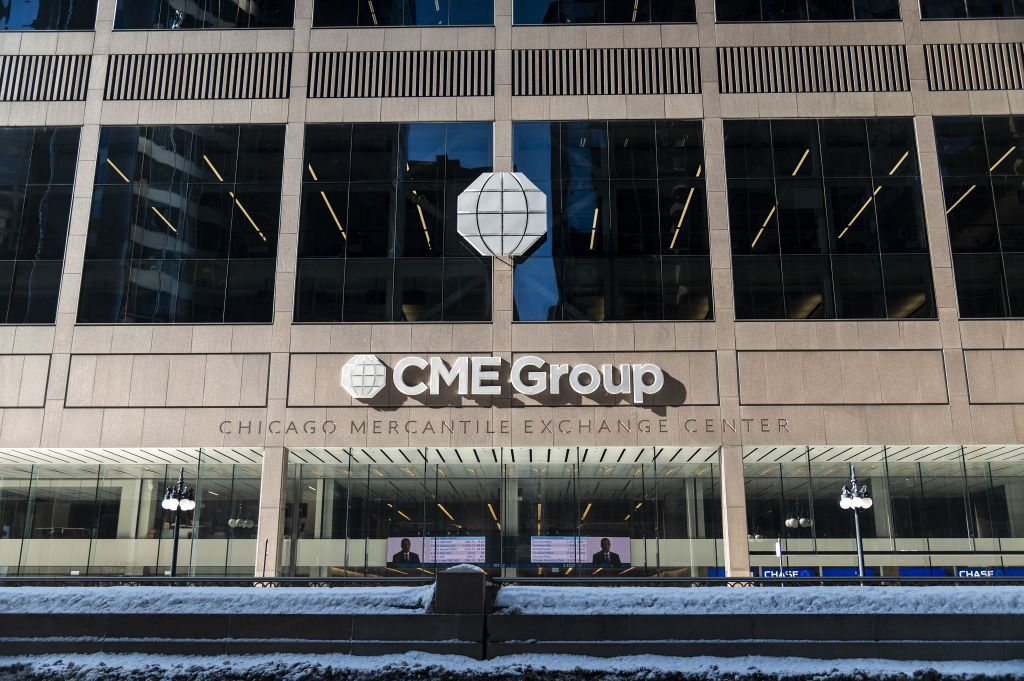Why Sezzle's shares may be overvalued
Sezzle, the US buy-now-pay-later provider, is resting on shaky foundations. Is it time to sell this stock?


Get the latest financial news, insights and expert analysis from our award-winning MoneyWeek team, to help you understand what really matters when it comes to your finances.
You are now subscribed
Your newsletter sign-up was successful
Want to add more newsletters?
One of the most controversial areas of the financial technology (fintech) sector is buy-now-pay-later, or BNPL. Like traditional consumer financing schemes, BNPL allows a firms’ customers to buy goods without paying for them upfront; the company essentially lends them the purchase price. However, instead of the company having to provide the capital, and take on the risk that the purchaser won’t be able to pay, a BNPL provider uses its own money, assuming the credit risk, in exchange for a cut of the sale price.
BNPL’s supporters argue that it can be a win for all concerned, with consumers getting hassle-free access to a wider range of goods and merchants making more sales. Of course, BNPL firms hope that the money they get from the loans and merchant fees will more than compensate for any defaults. It has certainly proved popular, with research suggesting that the value of BNPL loans in the US will eclipse $100 billion for the first time in 2025. However, the worry is that it may encourage people to borrow beyond their means. What’s more, from an investor’s point of view, the quality of some of the loans that BNPL firms provide are a cause for concern.
A case in point is the American BNPL provider Sezzle (Nasdaq: SEZL). Originally listed in Australia, Sezzle changed its listing to the US 15 months ago. Between May and November 2024 the share price rose tenfold thanks to soaring revenue growth and the fact that it now says that it is making money. However, sceptics, such as short seller Hindenburg Research, argue that these profits depend on whether it is correctly estimating the percentage of loans that will default. If the loans do worse than expected – either thanks to bad lending practices or a general economic downturn – then these profits could very quickly disappear.
Try 6 free issues of MoneyWeek today
Get unparalleled financial insight, analysis and expert opinion you can profit from.

Sign up to Money Morning
Don't miss the latest investment and personal finances news, market analysis, plus money-saving tips with our free twice-daily newsletter
Don't miss the latest investment and personal finances news, market analysis, plus money-saving tips with our free twice-daily newsletter
The quality of the loan book isn’t the only thing investors are worried about. All the evidence suggests that the number of merchants signed up with Sezzle has actually gone down over the past three years, with several partnerships with major companies such as Target failing to materialise. There have also been complaints about Sezzle allegedly making it very easy for users to sign up to its premium subscription service by accident.
Are Sezzle's shares overvalued?
The shares look overvalued too. They are on 24.5 trailing earnings and a price-to-sales ratio of 5.75, which is relatively high for a technology firm, and higher than most other BNPL firms.
There are also signs that the market is beginning to reconsider Sezzle, especially after it decided to issue some more shares in November, possibly suggesting that even Sezzle’s management thinks it is overvalued, or that it wants to have more cash on hand to cover losses from loans. Already Sezzle is down by more than half from its November peak. With the company now trading well below its 50-day moving average, I suggest shorting it at the current price of $228 at £10 per $1. In that case, cover your position if it went above $318, which gives you a total downside of £900.
This article was first published in MoneyWeek's magazine. Enjoy exclusive early access to news, opinion and analysis from our team of financial experts with a MoneyWeek subscription.
Get the latest financial news, insights and expert analysis from our award-winning MoneyWeek team, to help you understand what really matters when it comes to your finances.

-
 The rare books which are selling for thousands
The rare books which are selling for thousandsRare books have been given a boost by the film Wuthering Heights. So how much are they really selling for?
-
 Pensions vs savings accounts: which is better for building wealth?
Pensions vs savings accounts: which is better for building wealth?Savings accounts with inflation-beating interest rates are a safe place to grow your money, but could you get bigger gains by putting your cash into a pension?
-
 Should you sell your Affirm stock?
Should you sell your Affirm stock?Affirm, a buy-now-pay-later lender, is vulnerable to a downturn. Investors are losing their enthusiasm, says Matthew Partridge
-
 Profit from pest control with Rentokil Initial
Profit from pest control with Rentokil InitialRentokil Initial is set for global expansion and offers strong sales growth
-
 In the money: how my trading tips fared in 2025
In the money: how my trading tips fared in 2025The success of the open positions offset losses on closed ones, says Matthew Partridge
-
 Coreweave is on borrowed time
Coreweave is on borrowed timeAI infrastructure firm Coreweave is heading for trouble and is absurdly pricey, says Matthew Partridge
-
 Circle sets a new gold standard for cryptocurrencies
Circle sets a new gold standard for cryptocurrenciesCryptocurrencies have existed in a kind of financial Wild West. No longer – they are entering the mainstream, and US-listed Circle is ideally placed to benefit
-
 Profit from other investors’ trades with CME Group
Profit from other investors’ trades with CME GroupCME Group is one of the world’s largest exchanges, which gives it a significant competitive advantage
-
 Investors need to get ready for an age of uncertainty and upheaval
Investors need to get ready for an age of uncertainty and upheavalTectonic geopolitical and economic shifts are underway. Investors need to consider a range of tools when positioning portfolios to accommodate these changes
-
 How much gold does China have – and how to cash in
How much gold does China have – and how to cash inChina's gold reserves are vastly understated, says Dominic Frisby. So hold gold, overbought or not